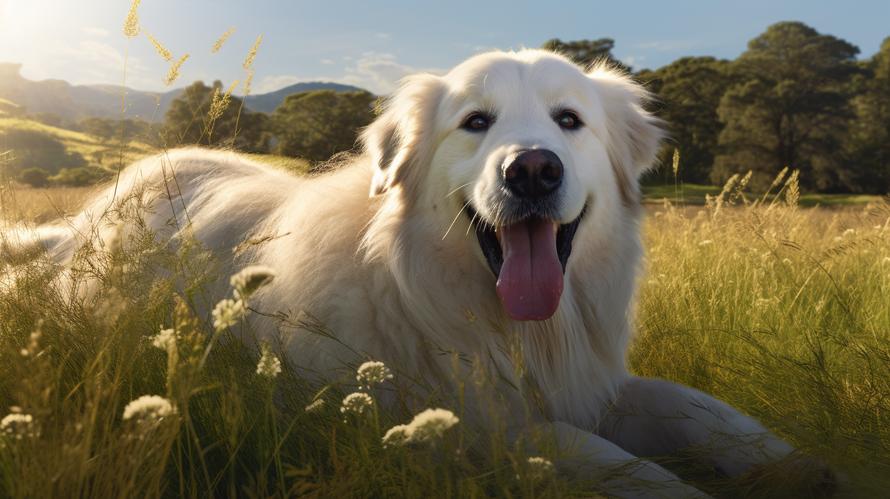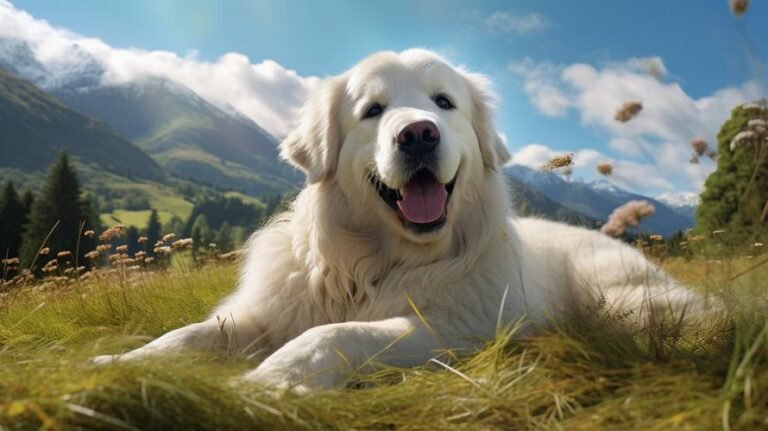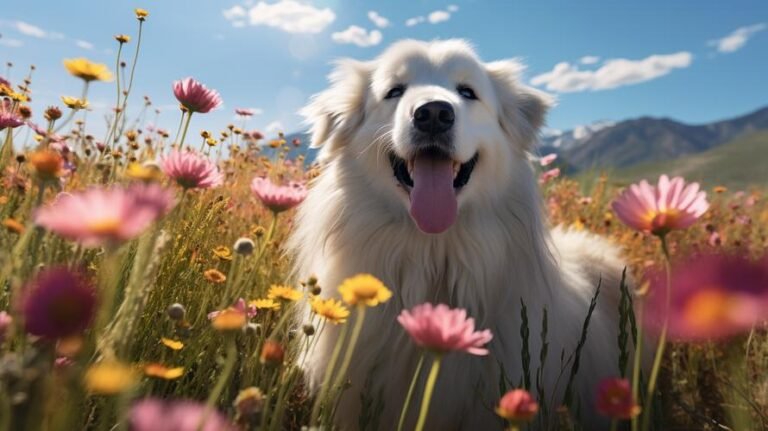When you’re beside a Great Pyrenees – a large, majestic breed of dog known for its snow-white coat, gentle demeanor, and ancient lineage – it’s hard not to feel some amount of awe. These dogs, which hail from the snowy Pyrenees mountains between France and Spain, have centuries of incredible history behind them. But did you know they also have a unique nutritional history as well?
Yes, the ancestors of our modern Great Pyrenees dogs had diets quite different from the kibble we feed our pets today. Until less than a hundred years ago, these dogs survived on a variety of hearty foods found in their mountainous home: raw meats from livestock, antioxidant-rich berries, and, yes, even some grains that they’d either find on their own or be given by their shepherds.
Of course, it’s important to remember that just because a food was part of a dog’s ancient diet doesn’t mean it’s the best choice for today’s pets. In fact, modern research reveals that the question of should Great Pyrenees eat grain-free is one that requires a closer look.
And that’s what I’m here to do. So let’s dive in and learn something valuable about the best grub for these gentle giants.
In recent years, there’s been a big push towards feeding our dogs grain-free diets. You might think this is just another fad. But believe it or not, there’s a good reason behind this trend. Many dogs have shown to have difficulty digesting grains, and in some cases, this can lead to adverse effects. Symptoms like skin issues, ear infections, and gastrointestinal problems could possibly be linked to grains.
But does this mean that the white wonder, the princely Pyrenees, must stay away from all grains forever? Like most things in dog nutrition, the answer isn’t black and white.
You see, some Great Pyrenees dogs do well on grain-free diets, while others do not. It mostly depends on the individual dog. However, what’s more important than whether the food is grain-free or not, is that the diet is balanced and properly formulated for the dog’s specific needs.
Furthermore, while some dogs might indeed have a sensitivity or even an allergy to certain grains, this doesn’t mean all grains are bad. In fact, when properly cooked, grains like rice, barley, and oats can provide valuable nutrients like fiber, essential fatty acids, and vitamins.
Considering this, for many pet parents, grain-free diets are more a lifestyle choice, guided by the desire to offer their pets a diet close to what their ancestors might have consumed. However, this decision should always be based on the individual dog’s tolerance for grains checked by a vet, not just on preference or belief.
One crucial point to remember is that grains are not inherently harmful for dogs, nor are they nutritionally empty fillers – an unfortunate myth that has been doing the rounds recently. On the contrary, grains can contribute to a well-rounded diet for many dogs, including Great Pyrenees dogs.
However, we cannot ignore the reality. From 2018-2019, the FDA investigated hundreds of reports of dogs developing a heart condition called DCM, or Dilated Cardiomyopathy, which some vets believed was connected to grain-free diets. But the connection was loose, with researchers unable to definitively establish a link.
As a loving Great Pyrenees owner, it’s crucial to know that grain-free diets cannot be decided upon randomly but should be used only if it suits your pet’s individual health profile and based on a professional vet’s recommendation. In many cases, a regular, well-balanced diet that includes some grains could be a perfectly healthy choice.
This brings us to the fascinating concept of ‘The Rotation Diet,’ which is being increasingly suggested by many animal nutrition experts. The idea is to expose your Great Pyrenees dog to diverse diet options, including different meats, vegetables, and yes, even some grains, if your dog is not allergic. By preventing overexposure to a single type of food, your dog might end up with a more balanced range of nutrients over time.
In summary, feeding your Great Pyrenees a grain-free diet could be either beneficial or unnecessary, depending on your dog’s individual needs and tolerance for grains, preferably identified by a vet. Remember, the more you know about your dog’s dietary needs and what his food contains, the better you can ensure that he’s receiving a nutritious, balanced, and enjoyable diet.
Our gallant Pyrenees giants, with their gentle hearts and shaggy, snowy white coats, deserve the best care and nutrition we can provide. Deciding whether to go grain-free is one part of that consideration, and I hope this exploration into the subject has given you some food for thought, pardon the pun!
So next time you’re standing in that pet food aisle, staring at the array of dog food options, remember – your Great Pyrenees’ diet goes beyond just grain or no grain. It’s about a balanced, enjoyable diet that suits your dog’s unique needs. And with that knowledge in your pocket, you’re well on your way to supporting your Great Pyrenees in living the best, healthiest life possible. After all, he only deserves the best, doesn’t he?



